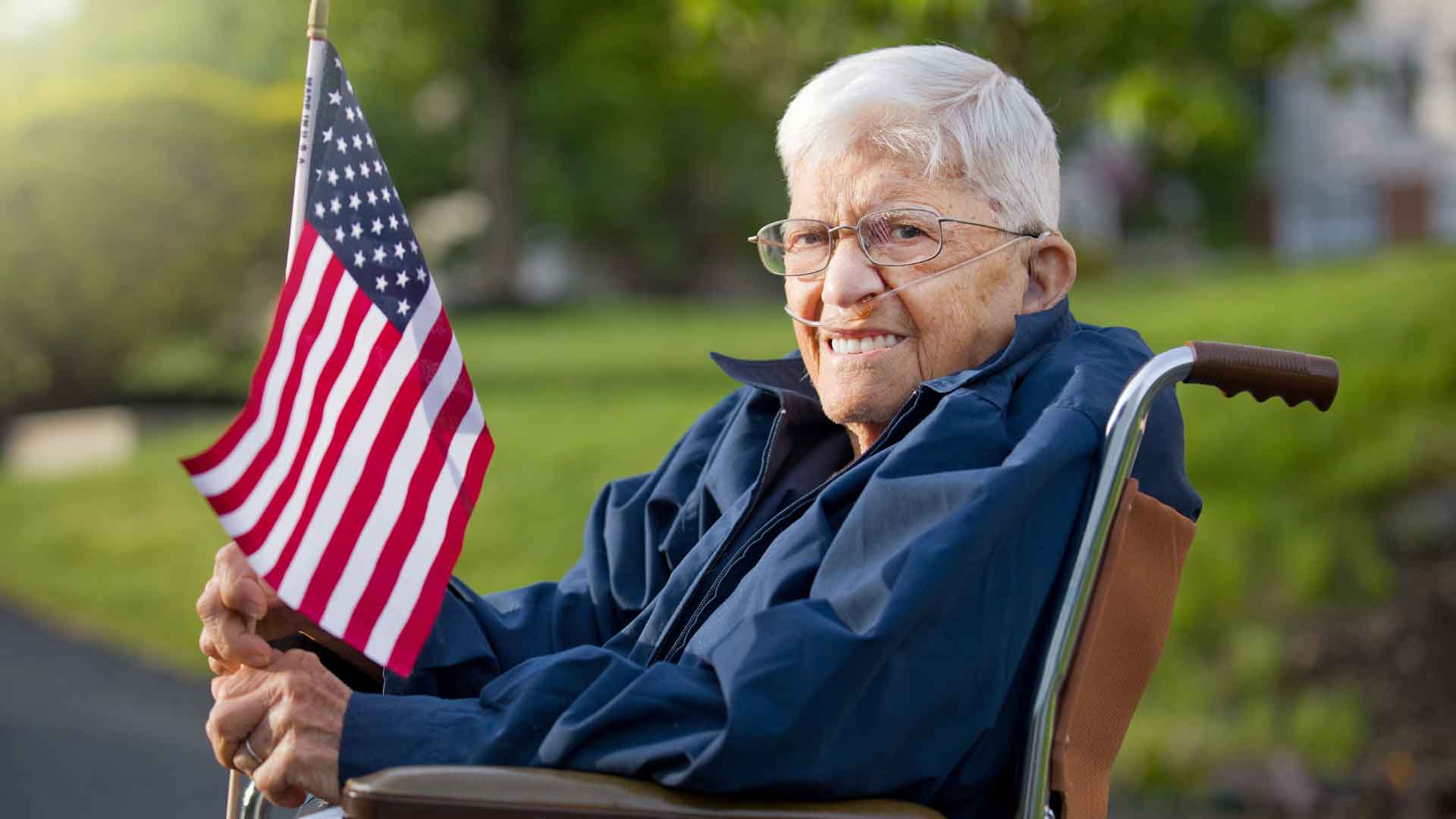
When caring for a veteran or supporting a family member who has served, the cost of home care and long-term support is often one of the biggest concerns. Many veterans want to stay in the comfort of their homes, close to family, instead of moving to a facility. That’s where home health care for veterans becomes so important; it provides the right balance of medical support and personal assistance, without taking away independence.
The VA offers several programs designed to meet different levels of care. These programs can help cover in-home assistance, skilled care, and other essential services. Understanding these options can make a real difference in planning for both the day-to-day needs and future well-being of your loved one.
Overview of VA Benefits for Home Care
VA benefits for home health care are coordinated through a centralized system that evaluates each veteran’s needs and assigns the appropriate level of support. Veterans and their families can work with VA case managers or accredited representatives. Understanding the framework of these programs helps families plan for both immediate care needs and long-term health management.
Approved care plans are implemented through home care agencies that follow VA guidelines and coordinate closely with case managers. They monitor the veteran’s health, adjust support as needs change, and provide guidance to families. This structured approach ensures veterans receive reliable and professional assistance while families have confidence that their loved ones are supported safely and effectively.
Read More: Supporting Veterans at Home: The Role of Home Care Provider
Main Types of VA Home Care Benefits
The VA’s home health care service programs are structured to meet each veteran’s individual needs. These programs combine professional guidance, financial assistance, and flexible caregiving options, helping veterans remain independent while receiving reliable support at home.
CCN (Community Care Network) Home Care
The Community Care Network (CCN) connects veterans with VA-approved private agencies for in-home care. It coordinates services between VA providers and external partners to maintain consistent quality and oversight. Under this program, a personal care attendant may assist veterans with essential daily routines while ensuring that care remains properly monitored and professionally delivered.
A&A (Aid & Attendance) Benefit
Aid & Attendance (A&A) offers additional financial assistance to veterans who require help with daily living. The benefit complements existing VA pensions, ensuring that funds are directed toward approved home care expenses. It helps veterans maintain long-term in-home support while reducing the financial burden on their families.
PCAFC (Program of Comprehensive Assistance for Family Caregivers)
The Program of Comprehensive Assistance for Family Caregivers (PCAFC) supports family members who serve as primary caregivers. Eligible caregivers may receive a monthly stipend, training, and health insurance benefits. This program empowers families to continue providing care at home while recognizing their critical role in supporting the veteran’s well-being.
VDC (Veteran-Directed Care)
Veteran-Directed Care gives veterans the flexibility to choose and manage their own caregivers while controlling how their care budget is used. This independence allows veterans to design a care plan that fits their preferences and lifestyle. The program also includes options for respite care, offering temporary relief for family caregivers while ensuring the veteran’s needs remain consistently met.
Also Read: Understanding the Different Types of Home Care Services Available
Who Qualifies for VA Home Health Care Benefits
Eligibility for VA home health care depends on a combination of the veteran’s medical needs, service history, and the specific program being accessed. Veterans or their families can contact their local VA office, speak with a care coordinator, or submit forms online to begin the process.
Common Qualifications:
- Daily assistance needs, such as help with bathing, eating, dressing, or mobility
- Service-connected disabilities or chronic medical conditions
- Low income or financial need for caregiving support
- Requirement for full-time or ongoing home care
- Verification of service history and eligibility documentation
What Is Considered a Permanent VA Disability?
A permanent VA disability is a service-connected condition that the VA expects will not improve and that requires ongoing care or support. This status can affect monthly compensation, eligibility for certain programs, and access to services like elderly home care. The key factors are medical evidence, service connection, and a VA determination that the condition will persist.
Steps to establish permanency
- Collect medical records. Gather VA and civilian notes, test results, and any specialist reports that describe your condition and long-term prognosis.
- Document service connection. Show how the condition relates to military service — service records, incident reports, or post-service treatment notes help establish the link.
- File a claim. Submit a disability claim to the VA with your supporting documents. You can file online, by mail, or with help from a veterans’ representative.
- Attend VA exams. The VA may request a Compensation & Pension (C&P) exam to assess the condition and current limitations. Go to scheduled exams and bring recent medical records.
- Request a permanence statement. Ask your treating clinician to note whether the condition is unlikely to improve and to describe ongoing care needs; such statements strengthen a claim for permanent status.
- Review the VA decision. The VA issues a rating and may label a condition as permanent and total or permanent. Read the decision closely and note any scheduled future exams.
- Appeal or seek review if needed. If the rating or permanence finding does not match your records, file for review or appeal with assistance from an accredited Veterans Service Organization (VSO) or attorney.
How To Apply for VA Home Care Benefits in California
Applying for VA benefits in California follows the national process, but local and county offices can provide extra guidance. Prepare your paperwork, decide how to file your claim, and use available resources for a faster review. If you’re requesting in-home support, include detailed documentation of daily care needs so the VA can properly assess your request for home health care service.
Application Steps
- Gather your records. Collect your DD-214 or separation papers, valid ID, medical records, and any proof of caregiver involvement or related expenses.
- Decide where to file. Submit your claim online through VA.gov, visit a regional VA office, or seek help from a county veterans service office or accredited representative.
- Complete and review your claim. Fill out the correct benefit form and attach your supporting documents. Ask a VSO or case manager to review it before submission.
- Provide evidence of home care needs. For in-home support, include clinician notes or functional assessments describing daily limitations.
- Respond promptly to VA requests. Attend scheduled exams or provide additional documents right away to avoid delays.
- Track your claim. Monitor your application on VA.gov or through your local office, and keep copies of everything you send.
- Set up care once approved. After approval, your VA care coordinator will help arrange elderly home care, assign a personal care attendant, or finalize payment and caregiver support.
Processing times vary by program. Submitting complete information and maintaining regular contact with your VA representative can help shorten the wait.
Common Challenges and Ways To Overcome Them
Applying for VA home benefits can be time-consuming, especially for families unfamiliar with the process. Common difficulties include paperwork errors, eligibility confusion, and long wait times. Below are ways to manage them effectively:
- Complex paperwork: The forms can be detailed and easy to misinterpret. Working with a VA-accredited representative helps ensure accuracy and completeness.
- Eligibility uncertainty: If you’re unsure which program applies, a VA case manager can connect you with the right home health care service for your needs.
- Delays in approval: Some claims take longer to process. Staying in touch with your local office and tracking your claim online keeps you updated.
- Caregiver fatigue: Balancing home care with other duties can be draining. Accessing respite care or part-time assistance through VA programs can ease the pressure.
- Policy updates: VA guidelines change periodically. Subscribing to updates or connecting with veteran organizations helps you stay informed about new benefits.
Can Caregivers Receive Financial Support?
Yes. Through programs like PCAFC and Aid & Attendance, caregivers may qualify for stipends or financial assistance. This support helps families cover the costs of elderly home care and ensures that caregivers are not left struggling financially while providing full-time assistance.
Resources & Support for Veterans and Caregivers
Veterans and their families in Orange County can access support through local VA offices, nonprofit organizations, and community centers. The VA Caregiver Support Line provides direct guidance from trained professionals who can answer questions and help families navigate available programs. Local Veterans Service Organizations (VSOs) in Orange County also assist with applications, advocacy, and connecting veterans to additional resources.
County-specific programs and services complement VA benefits, offering extra options for elderly home care and in-home support. Participating in Orange County veteran communities and online forums allows families to share experiences, ask questions, and stay informed about new programs and local events.
Trusted Home Health Care for Veterans
Caring for veterans goes beyond medical treatment, it requires respect, compassion, and dependable support. Home Care Providers is fully credentialed by the U.S. Department of Veterans Affairs (VA) as part of the Community Care Network (CCN). This approval reflects our compliance with rigorous standards, including comprehensive caregiver training, thorough background checks, and strict service quality requirements, ensuring veterans and their families receive care from a trusted, verified agency.
When you need VA-approved home care, Home Care Providers is here to guide you every step of the way. Contact us today to learn how our personalized home health care services can make daily life easier for your loved one.


 The Ad Firm
The Ad Firm